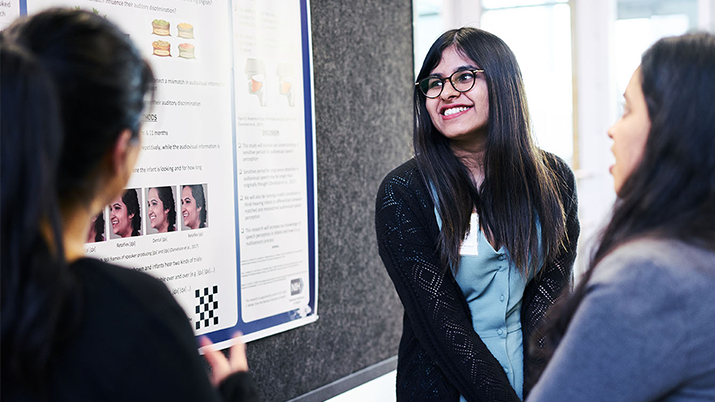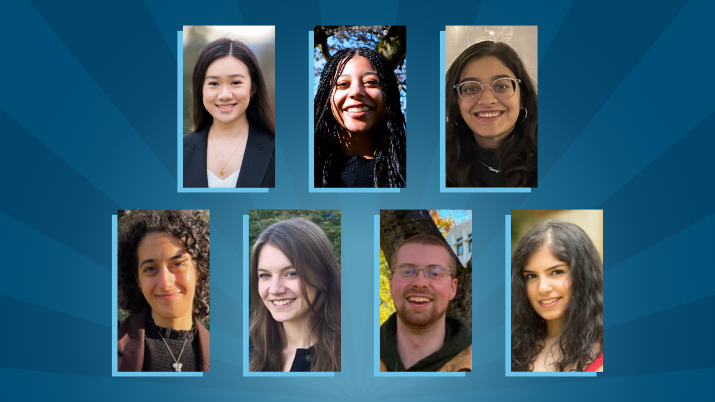Memories attached to emotions are stronger, especially when they are linked to very positive or very negative events. Building on previous work, Dr. Daniela Palombo and her research team in the Memory and Imagination Lab at UBC explored if emotion would also impair memory.
To examine the effects of emotion on an often-overlooked aspect of memory, temporal context, they used novel approaches—such as video stimuli—to study how negative emotion affects episodic memory. Using video allowed the research team to explore new and different facets of memory.
“Does emotion affect our ability to place an event back on the timeline in which the event occurred? The short answer is ‘yes’.”
Dr. Palombo, who is lead author of the new study, Exploring the Facets of Emotional Episodic Memory: Remembering “What,” “When,” and “Which”, joins us for a Q&A to discuss this research, and how memories are formed by emotions.
Tell us more about this research
To start with, this was the first empirical paper the Memory and Imagination Lab at UBC published! It was run by UBC undergraduate students Alessandra Te, Katherine Checknita.
The study looks at how emotion (especially negative emotion) affects episodic memory (our memory for specific events). This is not a new question—but we wanted to look at different aspects of memory and we did so using some novel approaches (e.g., using more naturalistic stimuli like video clips). We were especially interested in whether emotion would impair memory for when an event occurred.
Can you tell us about how showing video stimuli formed memories?


We know memory is not just one thing, even though we sometimes tend to think of it this way —but we can form a memory for what, where, when etc. Does emotion affect these aspects of memory in the same way? This question has been hard to answer since a lot of studies use ’static’ stimuli like pictures but in the real world, events are dynamic and they unfold in time. Our video clips allowed us to explore these different facets of memory using a single paradigm.
Can you tell us about the ‘what, where, and when’ of emotions and memories?
If you can imagine you encounter a snake on your morning hike. What would you later remember? Our findings suggest that, sure, you would likely remember the snake well. But you would not necessarily have a good memory for the context you saw the snake in—was it the park or the forest? What about when? Does emotion affect our ability to place this event back on the timeline in which the event occurred? (Did it occur early on my hike or later?) The short answer is ‘yes’.
“Our memories are the stories of our lives.”
How did the study work?
We tested whether emotion would impair memory for when an event occurred. Participants (N = 116 adults) watched videos where negative and neutral images were inserted into an unfolding event. Consistent with prior work, results showed that emotion enhanced and impaired memory, respectively, for “what” and “which.” We ran the entire study twice and we replicated all the findings in the second cohort! This gives us a lot of confidence in the results.
What surprised you about the results?
Our study showed that the findings for “when” were more complex and quite interesting. Negative emotion did not affect the precision of one’s temporal judgements. However, surprisingly, we found that participants estimated that neutral images occurred relatively later, but there was no such bias for negative images. By examining multiple features of episodic memory, we provide a holistic characterization of the myriad effects of emotion.
What are the next steps?
This study explored only one aspect of temporal memory. But time is not one thing. In our other work, which was also co-authored with UBC undergraduate Deea Dev and graduate students Aria Petrucci and Victoria Wardell, we are exploring whether negative emotion affects our ability to place events in the sequence in which they occurred. When you embarked on your hike, lots of things happen that you will later being to mind as you relive that event. Did you see the snake when you first arrived on the trail or was it after you stopped to take a selfie? Building on prior work, we are also exploring the way in which emotion might dilate events in memory—as if time slows down in our mind’s eye when we experience something stressful. This is an exciting line of research for me as time is such an important scaffold by which we re-experience the events of our past and it is important for how we come to remember our events as an integrated, cohesive experience. Our memories are the stories of our lives.



